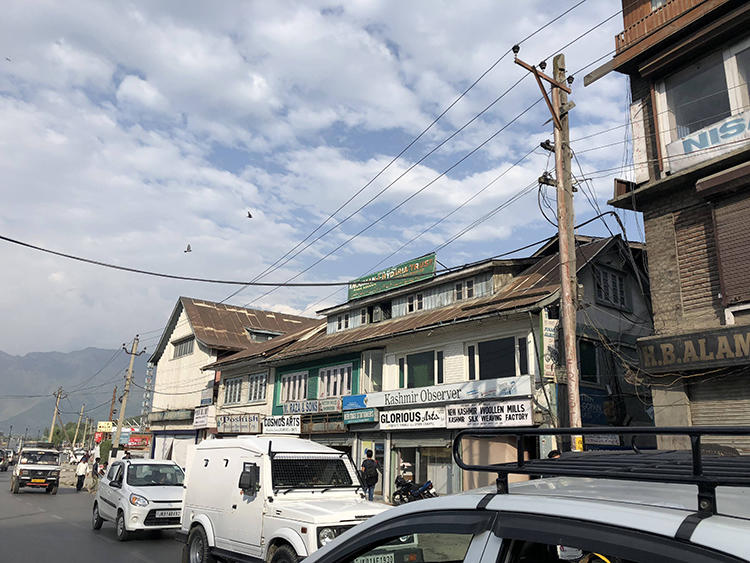Journalists in Indian-controlled Jammu and Kashmir faced numerous incidents of restrictions and attacks between October 8 and October 30, 2018. During this period, journalists attempted to cover urban local elections in the state, as well as events surrounding the killing of militant commander Manan Wani by the security forces.
- On October 8, 2018, security forces prevented photojournalists from covering the local elections in north Kashmir’s Kupwara district, according to Rising Kashmir. “We are not even allowed to move freely. The cops told us that there was clear direction from the district authorities not to allow media persons to cover the ULB [urban local bodies] polls,” photojournalist Shoeb Masoodi told Rising Kashmir. Kashmir Reader reported that a group of voters prevented photojournalists from taking their photographs at a polling booth in the Bemina area of the city of Srinagar.
- On October 11, 2018, Jammu and Kashmir police stopped a dozen journalists from the state and national media from covering funeral prayers for slain militant Manan Wani in Kupwara district for three hours, according to The Kashmir Press. Wani was a high-profile militant who was killed in an encounter with security forces on October 11. “We pleaded to the police that we have to cover the funeral of slain Manan as assignment for our publications. But, they didn’t pay heed to our pleas,” an unidentified journalist with a New Delhi-based publication told The Kashmir Press. After three hours, the journalists were allowed to proceed to the location of the funeral.
- On October 13, 2018, Jammu and Kashmir police barred reporters from covering local elections in certain polling stations in Srinagar even though they were carrying an authorization letter from the state election commission, according to Free Press Kashmir. On the same day, two journalists–Fayaz Lolu and Deen Imran–working with national TV news channels Munsif and Aalmi Sahara were stopped from covering the elections and beaten by paramilitary forces and police in the city of Anantnag, according to Rising Kashmir.
- On October 17, 2018, Jammu and Kashmir police beat up at least six journalists covering a military operation against militants in Srinagar, according to a report in The Quint. “There was no law and order situation other than the encounter. I was talking to DIG [deputy inspector general] Srinagar, suddenly a policeman came carrying a lathi [baton] and started beating my cameraman. When I intervened and asked him why he was hitting him, he started hitting at me as well,” Asif Qureshi, a journalist working with ABP news channel, told NDTV. A day later, Inspector General of Police SP Pani issued an apology to the journalists, according to the same report.
- On October 19, 2018, three journalists with Kashmir Walla–Saqib Mugloo, Kaiser Andrab, and Bhat Burhan–were beaten outside their office and then picked up by the state police, according to a report in Free Press Kashmir. Speaking to CPJ, Mugloo said, “The police started beating me randomly and accused me of informing stone pelters about police’s whereabouts.” Mugloo said they were taken to the police station even after showing their press cards. It was only after their editor, Fahad Shah, made phone calls to senior police officials, that the journalists were released, Mugloo said.
- On October 30, 2018, a videographer working with Zee News, Aijaz Ahmad Dar, was shot with pellets from a pellet gun by security forces while covering a clash between protesters and security personnel in South Kashmir’s Sopian district, according to Kashmir Life. “We put our hands up and told them that we are from the press and one of my colleague was wearing press jacket. But the forces directly target both of us,” said Ajaz told Kashmir Life.
In a statement, the Kashmir Journalists Association expressed serious concerns about curbing the movement of journalists by government security agencies. “All these incidents expose the muddled behavior of the security establishment including the J&K police. Stopping journalists from doing their professional duties is a criminal act and it reflects that the set constitutional and democratic values are not respected in the state,” KJA said.
Even though Inspector General of Police SP Pani apologized for the October 17 incident, the police and the government at large have remained silent on these incidents. Pani did not respond to a text message from CPJ requesting comment on these incidents.
